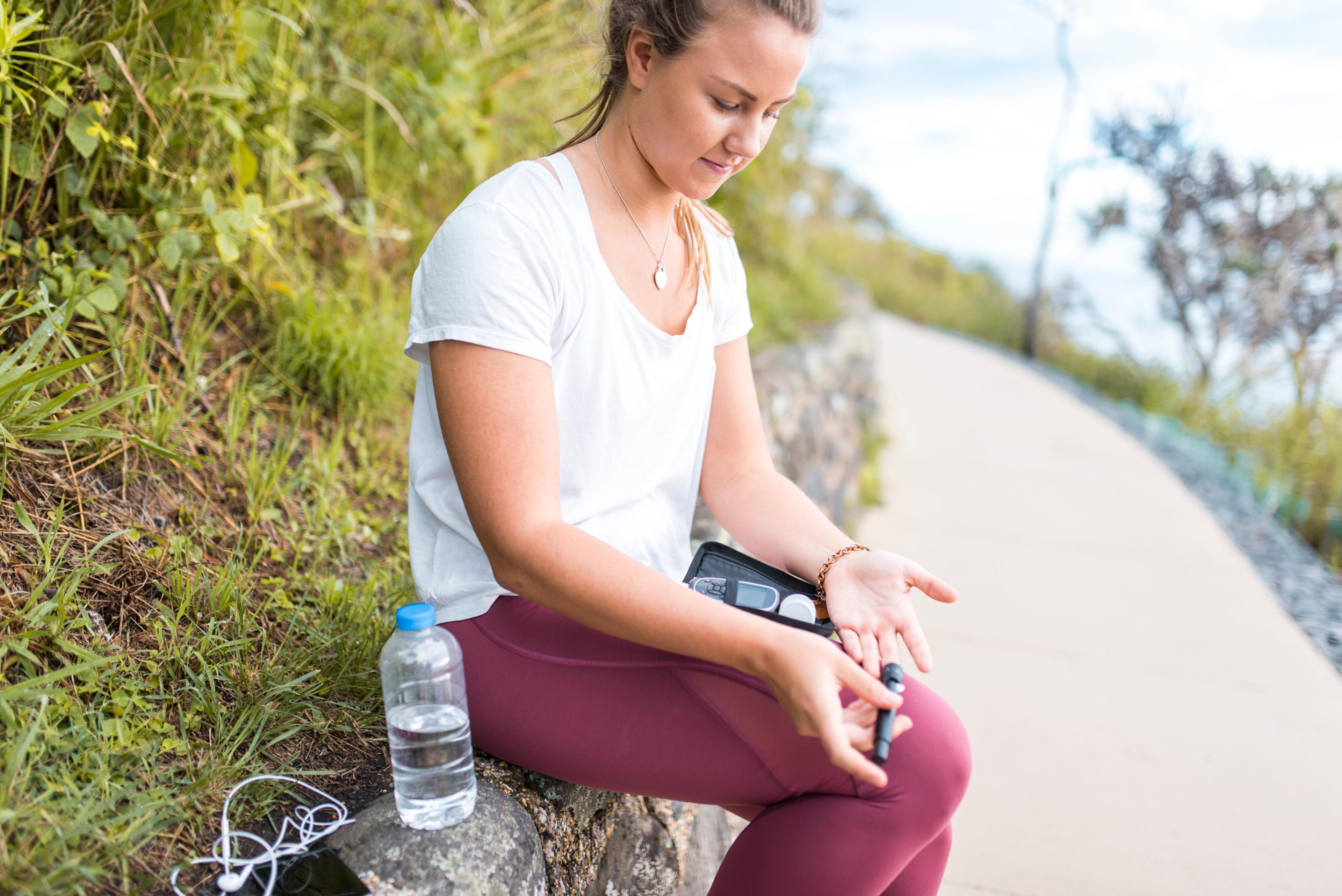How Summer Heat Affects Individuals with Diabetes

Jenna Natwick
| 3 min read
Jenna Natwick is a corporate communications intern a...

Summer heat can be difficult for everyone. Hot weather can increase the risk of conditions such as heat exhaustion, heat stroke, sunburn, sun poisoning and dehydration. Individuals with chronic conditions, like diabetes, are especially susceptible to the negative effects of heat.
Managing diabetes can be challenging in any weather. However, it is important to be aware of the risks hot weather poses to individuals with diabetes in order to remain healthy.
How diabetes works
According to the National Institute of Diabetes and Digestive and Kidney Diseases, diabetes occurs when blood glucose, or sugar, is too high. This can occur when your pancreas isn’t making or using enough of the hormone insulin.
Insulin’s purpose is to convert glucose into energy for our body. Not having enough insulin means that your cells will not get the glucose they need, and the glucose will remain in the bloodstream.
Thankfully, diabetes is manageable, and individuals with diabetes can live healthy lives if they take care of themselves.
How diabetes is impacted by hot weather
According to the U.S. Centers for Disease Control and Prevention (CDC), managing diabetes can become trickier in the summer heat. Individuals with diabetes are more prone to some of the negative effects of heat than their peers. The most common risks are dehydration, sunburn, heat exhaustion and heat stroke.
Dehydration is a hot weather risk for all. However, those with diabetes get dehydrated quicker than others. High blood sugar can cause greater urination rates, which leads to dehydration. People with diabetes may also be on medications that can cause dehydration, such as diuretics.
Like dehydration, it is important to avoid sunburn regardless of health conditions. However, sunburn is known to be capable of raising blood sugar levels, which makes it especially risky for people with diabetes.
A history of blood vessel and nerve damage complications from diabetes can lead to risks in the heat as well. These complications can cause your body to have difficulty cooling you down. If you can’t cool down, there is a risk of heat exhaustion and heat stroke.
Tips for protecting yourself from the heat
There are multiple ways people with diabetes can protect their health in high temperatures. The first step is to be aware of the heat and humidity index. Talk to your health care provider about any precautions they recommend specifically for you.
The CDC recommends following these guidelines when the temperature is 80 degrees in the shade with 40% humidity or above:
- Drink plenty of water, even when you are not thirsty.
- Test your blood sugar often.
- Stay in air-conditioning as much as possible during high temperatures.
- Wear loose, light clothing.
- Seek medical attention for heat-related illness.
- Avoid alcohol and caffeinated drinks, they can increase blood sugar and water loss.
- Exercise in the early morning, evening or seek an air-conditioned workout space.
- Protect yourself from sunburn; wear a hat and sunscreen when you’re outdoors.
Prepare an emergency go-bag
The CDC also recommends that you are prepared for emergencies by packing a go-bag. This may be necessary if you lose power due to summer storms or heat.
Below are the items you should include in a waterproof bag or storage container:
- Insulin and syringes
- Blood sugar meter
- Extra batteries
- Lancets and lancing devices
- Insulin pump supplies
- Glucagon kits
- Ketone strips
- Alcohol wipes
- Glucose tablets or 15 grams of carbs to treat low blood sugar
- Oral diabetes medicine
- A sealed plastic bag with your medical information
There should be enough supplies in your go-bag to last one to two weeks. Everything in your go-bag must be stored according to the manufacturer’s instructions. Remember to check expiration dates every few months to ensure you are using fresh supplies.
Photo credit: Getty Images




